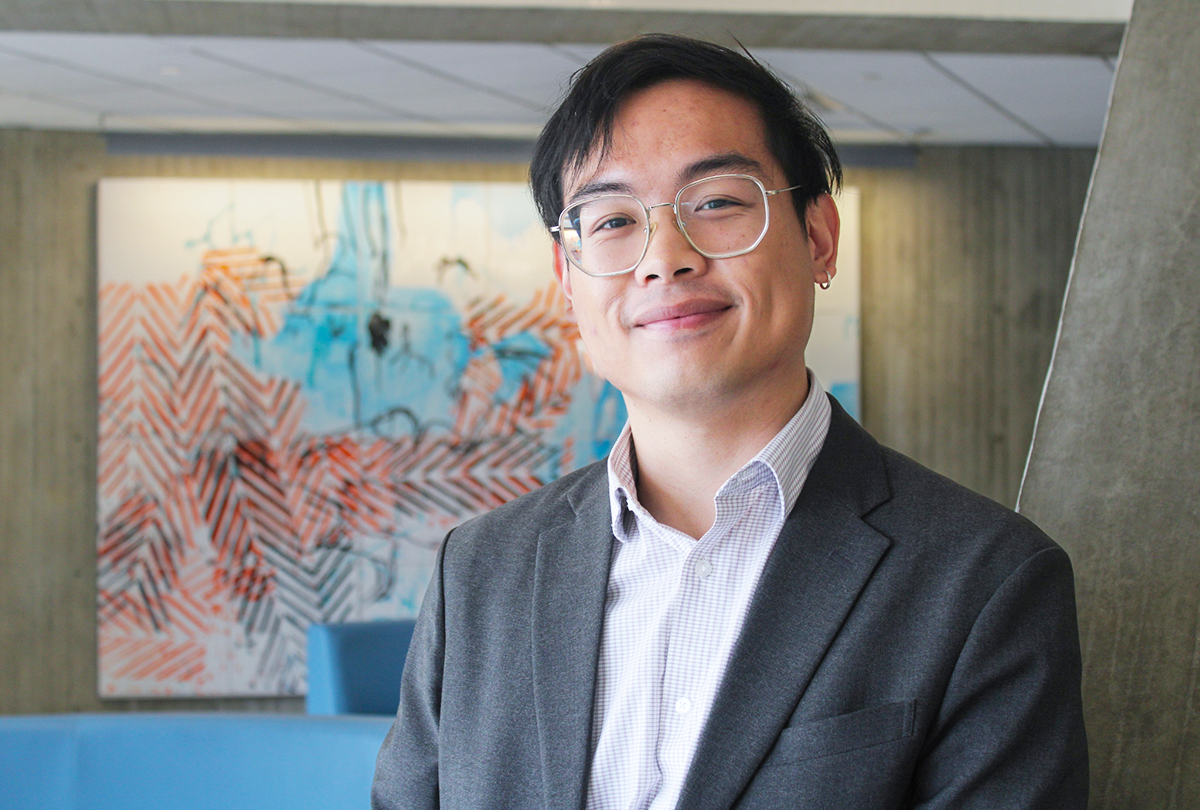May 7, 2025
Introducing Joshua Abraham, the newest lecturer in the MIT Chemical Engineering Department
 The MIT Chemical Engineering Department is delighted to welcome Dr. Joshua Abraham as a new lecturer. Dr. Abraham brings a strong background in both research and teaching, with a passion for supporting student learning and academic growth. In his first semester, Abraham will teach first-year students in 10.00 (biomolecular engineering, chemical process design, materials and polymers) and 10.32 (separation processes), while also assisting Undergraduate Officer Tom Kinney with recruitment.
The MIT Chemical Engineering Department is delighted to welcome Dr. Joshua Abraham as a new lecturer. Dr. Abraham brings a strong background in both research and teaching, with a passion for supporting student learning and academic growth. In his first semester, Abraham will teach first-year students in 10.00 (biomolecular engineering, chemical process design, materials and polymers) and 10.32 (separation processes), while also assisting Undergraduate Officer Tom Kinney with recruitment.
Abraham earned his BS in Chemical and Biochemical Engineering from the University of California, Los Angeles in 2019. He went on to pursue his PhD in chemical and biological engineering at the University of Wisconsin–Madison under the mentorship of Dr. Brian Pfleger, completing his degree in 2024. His doctoral research focused on metabolic engineering and synthetic biology in cyanobacteria, with an emphasis on enhancing fatty acid production.
In addition to his research, Abraham obtained a certificate in higher education in teaching and learning through the Delta Program at UW–Madison, highlighting his commitment to innovative and effective teaching practices. He is excited to join the MIT ChemE community and looks forward to contributing to both the academic and personal development of MIT students.
Q: What inspired you to become a chemical engineer?
A: Like many 18-year-olds who ventured into the field, I was drawn to chemical engineering from an interest in applying chemical principles to real-world solutions. During my undergraduate career, I discovered how well-versed chemical engineers are in a diverse range of topics, so I was inspired by the promise of opportunities in many careers and in many job roles to continue down the path of a chemical engineer.
Q: What excites you most about joining our department?
A: Only halfway through my first semester, I can already tell how special MIT ChemE is. Everyone’s warm welcome and dedication to supporting the best research, the best education, and the best community makes me excited to start my career here. It feels like a place where I will always be discovering more about myself and becoming a better and better instructor.
Q: How do you make complex chemical engineering concepts engaging for students?
A: One strategy chemical engineers are particularly good at implementing is applying first principles to derive functional relationships or reveal interesting patterns. Similarly, from a pedagogical perspective, I think students learn best when we can build on prior knowledge and guide them towards complex concepts step-by-step. I think that providing consistent and constant feedback in a learning environment encourages learners to address misconceptions and ‘course correct’ on their journey to understanding difficult topics. When students know where they are along that journey and feel comfortable making mistakes and seeking guidance, that is when the best, most engaged learning happens!
Q: What advice do you have for students navigating their undergraduate experience?
A: During my undergraduate career, I often felt afraid of making mistakes, and that fear sometimes led me down the path of least resistance. I would encourage young students to be willing to explore: take classes that genuinely interest you, be okay with trying different research experiences and extracurriculars, and stay curious!
Q: What are your main research interests, and how do they connect to undergraduate education?
A: In my PhD, I studied cyanobacterial lipid metabolism and considered ways in which we could rewire and enhance their ability to produce specific chain-length fatty acids. While the biochemical and metabolic engineering field has a special place in my heart and will be something I always follow, I am also interested in engineering educational research. The needs of today’s students are similar and different to the needs of students in my time and before, so I am interested in studying how our own educational delivery can stay up to date while continuing to strengthen what we already do best.
Q: What do you hope to bring to our department’s undergraduate experience?
A: In a mostly instructional role, I am excited about the luxury of spending my time thinking about ways in which our undergraduate students can learn better and how we can work with them to address their needs and wants. I look forward to updating the curriculum, inventing new subjects, and acting as a resource for students who are curious about what chemical engineering can be for them in their future careers.
Q: What’s one thing you’d like students to know about you outside of the classroom?
A: As someone who loves learning, I enjoy quite a few hobbies! Over the years, I have most consistently worked on improving my photography and baking skills, but I also look forward to more active hobbies like kayaking and playing badminton. I also have a very cute cat, so students can expect me to sprinkle photos of her throughout my lessons so I can find excuses to dote about her.

